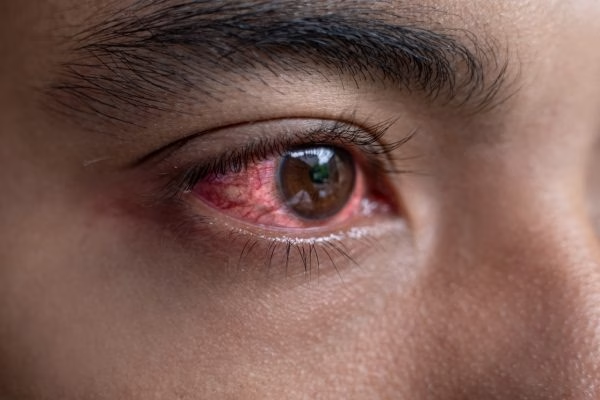
A sudden nosebleed can be an unsettling experience. Whether it happens while relaxing at home or during physical activity, the sight of blood pouring from the nose can be alarming, even though most nosebleeds are minor and treatable at home.
At AFC Urgent Care Massachusetts, we frequently help patients manage nosebleeds, especially during seasonal changes or dry months. Understanding what causes nosebleeds, how to respond effectively, and when to seek medical attention is crucial for immediate relief and long-term prevention. This comprehensive guide covers the types of nosebleeds, common causes, treatment methods, and signs that require professional care.
What Is a Nosebleed?
A nosebleed, or epistaxis, occurs when the blood vessels in the nose rupture, causing bleeding from one or both nostrils. The nose contains a rich supply of blood vessels that sit close to the surface, making it particularly vulnerable to irritation and trauma.
Nosebleeds can occur at any age but are especially common in children aged 2–10, adults aged 50–80, and individuals who suffer from frequent allergies, sinus infections, or blood clotting disorders.
Types of Nosebleeds
Understanding the type of nosebleed can help determine the severity and appropriate treatment.
Anterior Nosebleeds
- The most common type, accounting for over 90% of all nosebleeds.
- Originates from the front part of the nose (specifically the Kiesselbach's plexus, which is a network of tiny vessels).
- Usually, it is easy to control and treat at home.
Posterior Nosebleeds
- It's less common but more serious.
- Bleeding originates from deeper within the nose, often involving larger arteries.
- It is more likely to affect older adults, people with high blood pressure, or those on blood thinners.
- It can be harder to stop and may require medical intervention.
Common Causes of Nosebleeds
Numerous factors can lead to a nosebleed, ranging from environmental to medical.
Environmental Causes
- Dry air: Common during winter or in heated indoor environments.
- High altitudes: Reduced humidity and oxygen levels can dry out nasal passages.
- Frequent nose blowing: Often related to allergies or respiratory infections.
- Irritants: Exposure to smoke, chemical fumes, or pollution.
Physical Trauma
- Nose picking: One of the most common causes in children.
- Nasal injuries resulting from falls, sports, or accidental impact.
- Inserting objects is particularly common in young children.
- Recent nasal surgery or use of nasal sprays/steroids.
Medical Conditions
- Allergies and sinus infections: Inflammation can weaken nasal blood vessels.
- High blood pressure: This can cause blood vessels to rupture more easily.
- Blood-thinning medications: Such as aspirin, warfarin, or Plavix.
- Bleeding disorders: Including hemophilia and Von Willebrand disease.
Other Factors
- Hormonal changes during pregnancy
- Deviated septum or nasal structural abnormalities
- Substance use, including cocaine or intranasal medications
How to Stop a Nosebleed Quickly
While nosebleeds can be startling, most can be managed safely and effectively at home by following these steps:
- Stay Calm and Sit Upright
- Remaining calm helps control your heart rate, and sitting up reduces blood pressure in the nasal veins, which may help slow the bleeding.
- Lean Forward Slightly
- Contrary to old advice, do not tilt your head back. Instead, lean forward slightly to prevent blood from flowing down your throat, which can cause nausea or vomiting.
- Pinch Your Nose
- Use your thumb and index finger to firmly pinch the soft part of your nose (just below the bridge). Hold for 10–15 minutes without releasing.
- Breathe Through Your Mouth
- This keeps your airways open while pinching the nose and allows you to remain relaxed.
- Apply a Cold Compress
- A cold compress or ice pack on the bridge of the nose may help constrict blood vessels and slow the bleeding.
- Avoid Strenuous Activity
- Avoid heavy lifting, vigorous exercise, or bending over for the rest of the day, as these activities can trigger another bleed.
What Not to Do
- Do not lie flat or tilt your head back, as it may cause blood to run into your throat or stomach.
- Avoid inserting tissues, cotton, or tampons into the nostrils; this can irritate the tissues further.
- Don't blow your nose forcefully after the bleeding stops. Wait several hours before doing so.
When to Seek Urgent Care
While most nosebleeds resolve on their own, medical evaluation is necessary if any of the following occur:
- Bleeding persists beyond 20 minutes despite pressure.
- Frequent nosebleeds (more than once a week)
- The large volume of blood or bleeding from both nostrils
- Nosebleed following a head injury
- Signs of anemia (fatigue, dizziness, shortness of breath)
- You are taking blood thinners or have a known bleeding disorder.
- Bleeding occurs after nasal or sinus surgery.
At AFC Urgent Care Massachusetts, we are equipped to evaluate and treat both anterior and more complex posterior nosebleeds. We offer rapid care, including nasal packing, cauterization, and follow-up instructions to help prevent recurrence.
You can walk into any of our convenient locations without an appointment. Visit AFC Urgent Care Massachusetts to find a clinic near you.
Preventing Future Nosebleeds
If you are prone to frequent nosebleeds, consider these preventive strategies:
Maintain Moisture
- Use a humidifier in your home, especially in the winter.
- Apply a thin layer of petroleum jelly or saline gel inside your nostrils to prevent dryness.
- Use saline nasal sprays regularly.
Avoid Irritants
- Refrain from smoking and avoid exposure to secondhand smoke.
- Limit decongestant nasal sprays, which can dry out the nasal passages.
Treat Underlying Conditions
- Manage chronic allergies or sinus infections under the supervision of a healthcare provider.
- Ensure high blood pressure is adequately controlled through medication and lifestyle changes.
Be Gentle With Your Nose
- Avoid aggressive nose-blowing.
- Trim fingernails to discourage nose-picking in children.
- Wear protective gear during sports or physical activity.
How AFC Urgent Care Massachusetts Can Help
At AFC Urgent Care Massachusetts, our skilled medical team provides prompt evaluation and treatment for nosebleeds. Whether it's a one-time incident or a recurring problem, we'll identify the cause, offer immediate relief, and guide you on the next steps for prevention.
Our services include:
- Medical evaluation and nasal examination
- Cauterization for persistent bleeding
- Nasal packing for moderate-to-severe cases
- Monitoring for underlying conditions like hypertension or blood disorders
We accept most insurance plans and offer affordable self-pay options. For hours, services, and directions, visit www.afcurgentcare.com/massachusetts.
While nosebleeds are common and often harmless, they can sometimes signal an underlying condition or become serious if not treated properly. Knowing how to handle a nosebleed effectively and when to seek medical care is crucial for your safety and peace of mind.
If you're experiencing frequent or prolonged nosebleeds, don't wait. Visit your nearest AFC Urgent Care Massachusetts location for a thorough evaluation and fast, professional care. Find a clinic near you at www.afcurgentcare.com/massachusetts.

